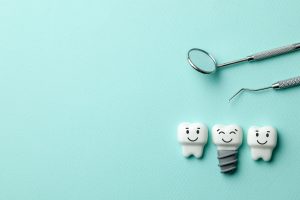 Our oral and maxillofacial surgeons may recommend a tooth extraction to protect your smile from major complications if a tooth is severely infected or damaged. But we also want to prevent issues from arising due to a missing tooth or two. With ridge preservation, your Santa Rosa, CA, oral surgeons help prepare your smile for implant placement!
Our oral and maxillofacial surgeons may recommend a tooth extraction to protect your smile from major complications if a tooth is severely infected or damaged. But we also want to prevent issues from arising due to a missing tooth or two. With ridge preservation, your Santa Rosa, CA, oral surgeons help prepare your smile for implant placement!
Restoring Strength And Density To Your Smile
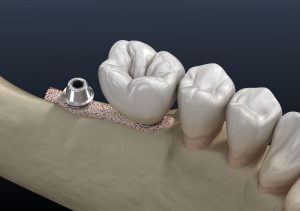 Did you know that once you lose one or more of your natural teeth, complications could begin to arise? The jawbone around the missing teeth begin to lose both strength and density, meaning that placing dental implants could be impossible without first rebuilding these portions of your smile. In today’s blog, your Santa Rosa, CA, oral surgeons explain how we accomplish this with ridge augmentation and sinus lifts.
Did you know that once you lose one or more of your natural teeth, complications could begin to arise? The jawbone around the missing teeth begin to lose both strength and density, meaning that placing dental implants could be impossible without first rebuilding these portions of your smile. In today’s blog, your Santa Rosa, CA, oral surgeons explain how we accomplish this with ridge augmentation and sinus lifts.
Replacing Your Extracted Teeth With Dental Implants
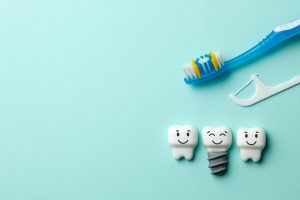 If you have a damaged tooth, then we may need to extract it and then replace it with a lifelike dental implant. If you lose most of your teeth, then a general extraction could be recommended to pave the way for implant dentures. In today’s blog, your Santa Rosa, CA, oral surgeons explain how we offer comfortable extractions and tooth replacement.
If you have a damaged tooth, then we may need to extract it and then replace it with a lifelike dental implant. If you lose most of your teeth, then a general extraction could be recommended to pave the way for implant dentures. In today’s blog, your Santa Rosa, CA, oral surgeons explain how we offer comfortable extractions and tooth replacement.
Making Your Implant Placement Comfortable
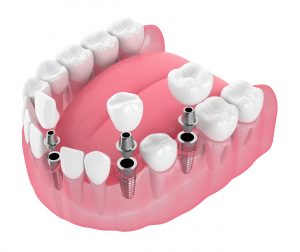 Dental implant placement involves oral surgery to replace missing teeth and return your smile to optimal health, function, and beauty. To ensure you feel comfortable, your Santa Rosa, CA, oral surgeons offer dental sedation to help improve your experience and keep you feeling comfortable.
Dental implant placement involves oral surgery to replace missing teeth and return your smile to optimal health, function, and beauty. To ensure you feel comfortable, your Santa Rosa, CA, oral surgeons offer dental sedation to help improve your experience and keep you feeling comfortable.
How Does A Dental Implant Preserve Your Smile?
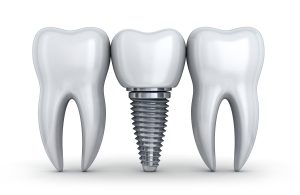 A dental implant does much more than fill a gap in your smile should you suffer from tooth loss. The placement could actually help preserve your jaw structure and prevent tooth loss, while also helping you maintain your youthful features too. In today’s blog, your Santa Rosa, CA, oral surgeons discuss how dental implants preserve your smile.
A dental implant does much more than fill a gap in your smile should you suffer from tooth loss. The placement could actually help preserve your jaw structure and prevent tooth loss, while also helping you maintain your youthful features too. In today’s blog, your Santa Rosa, CA, oral surgeons discuss how dental implants preserve your smile.
Full Arch Restoration With Minimal Implants
 When you lose most of your teeth, or all of them, then you may benefit from a full arch restoration, which allows us to provide implant-support dentures. But with the Trefoil™ system, we could support an entire arch with as little as three dental implants. In today’s blog, your Santa Rosa, CA, oral surgeons discuss full arch restoration.
When you lose most of your teeth, or all of them, then you may benefit from a full arch restoration, which allows us to provide implant-support dentures. But with the Trefoil™ system, we could support an entire arch with as little as three dental implants. In today’s blog, your Santa Rosa, CA, oral surgeons discuss full arch restoration.
Tooth Loss Treatment With A Full Arch Restoration
 When we lose teeth, this could lead to not only trouble eating and speaking, but negative changes to our facial structure and arches too. In today’s blog, your Santa Rosa, CA, oral surgeons will talk about options to restore your arch again and address even substantial cases of tooth loss with implant dentistry.
When we lose teeth, this could lead to not only trouble eating and speaking, but negative changes to our facial structure and arches too. In today’s blog, your Santa Rosa, CA, oral surgeons will talk about options to restore your arch again and address even substantial cases of tooth loss with implant dentistry.
Dentures Don’t Slip With Dental Implants
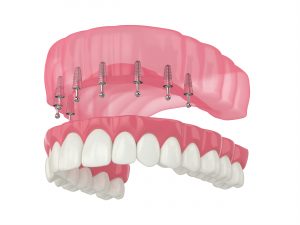 When you suffer from advanced tooth loss, then your smile could experience major shifts in appearance, and you could have trouble eating and speaking. To preserve your facial structure and restore function and beauty to your smile, you may need dentures. Fortunately, your Santa Rosa, CA, oral surgeons can use dental implants to secure dentures that never slip!
When you suffer from advanced tooth loss, then your smile could experience major shifts in appearance, and you could have trouble eating and speaking. To preserve your facial structure and restore function and beauty to your smile, you may need dentures. Fortunately, your Santa Rosa, CA, oral surgeons can use dental implants to secure dentures that never slip!
Preserving Natural Teeth With Implant Bridges
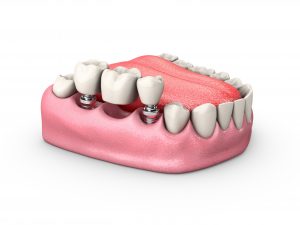 In our last blog, we talked about how we address an individual missing tooth with a dental implant. What if you have lost two or more teeth? To provide a prosthetic that lasts longer than those secured with crowns, we could fix a bridge in placed with advanced implant dentistry. In today’s blog, your Santa Rosa, CA, oral surgeons discuss implant bridges.
In our last blog, we talked about how we address an individual missing tooth with a dental implant. What if you have lost two or more teeth? To provide a prosthetic that lasts longer than those secured with crowns, we could fix a bridge in placed with advanced implant dentistry. In today’s blog, your Santa Rosa, CA, oral surgeons discuss implant bridges.
Replacing Individual Teeth With Implants And Crowns
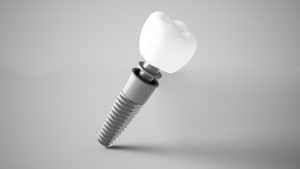 When you lose a single tooth, this doesn’t just mean a gap in your smile. Even just one missing tooth could lead to issues with the function and beauty of your smile. In today’s blog, your Santa Rosa, CA, oral surgeons discuss how we use implant technology to replace a single lost tooth with an implant and crown.
When you lose a single tooth, this doesn’t just mean a gap in your smile. Even just one missing tooth could lead to issues with the function and beauty of your smile. In today’s blog, your Santa Rosa, CA, oral surgeons discuss how we use implant technology to replace a single lost tooth with an implant and crown.

